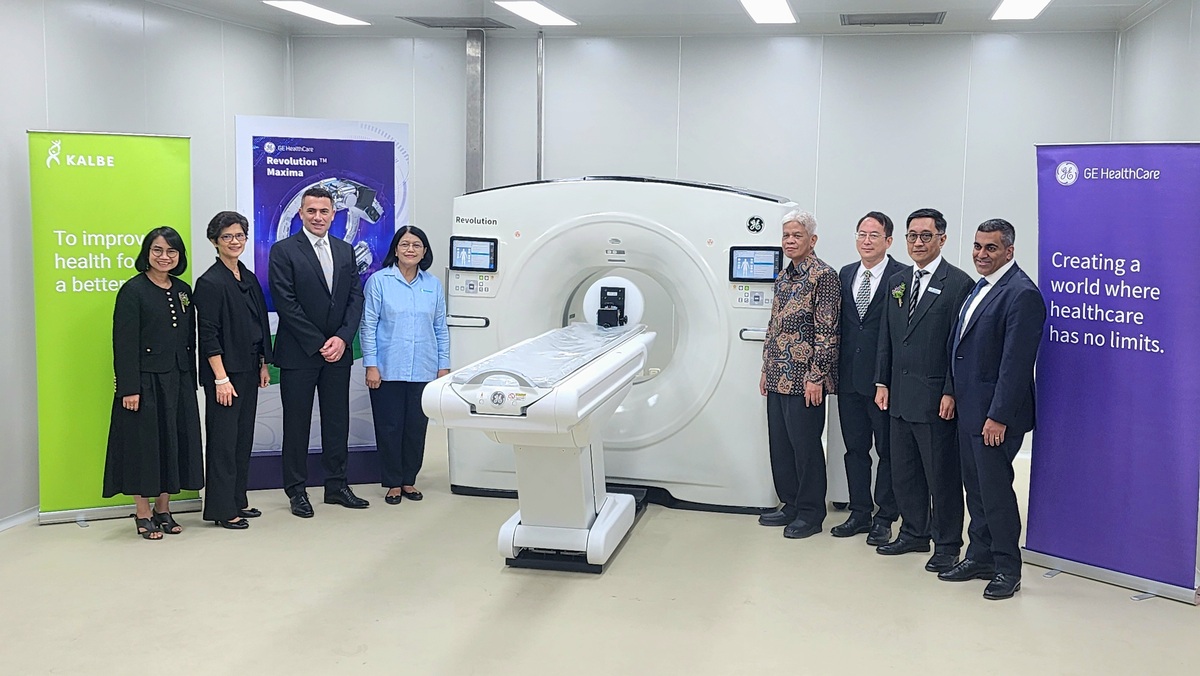Indonesia has taken a bold step toward health sovereignty by launching local CT scanner production in Bogor. Through a landmark collaboration between PT Forsta Kalmedic Global (a subsidiary of Kalbe Farma) and GE HealthCare, the country now boasts its first domestically assembled CT scanners. This milestone not only reduces reliance on imports but also strengthens the nation’s medical infrastructure, echoing government priorities on health resilience and self-reliance.
Why Local CT Scanner Production Matters
Healthcare access in a sprawling archipelago like Indonesia can be uneven. By initiating local CT scanner production, Kalbe and GE HealthCare aim to shorten delivery times to hospitals and clinics across the country. With a population of over 280 million spread across thousands of islands, rapid access to diagnostics is critical. Producing CT scanners locally increases the availability of these essential tools—key for diagnosing conditions from stroke to cancer—while potentially lowering costs and improving service in rural regions.
Moreover, CT scan machines rank among the top ten national priorities in domestic medical device manufacturing. The government has forecasted demand for 306 units between 2025 and 2027. Local CT scanner production directly supports this national agenda, aligning private sector efforts with public health goals.
In addition, localizing production allows better adaptability to local health needs and diseases more common in Southeast Asia. It also fosters quicker feedback loops between healthcare professionals and manufacturers, enabling future improvements to be implemented more rapidly.
Strategic Partnership Driving Production and Innovation
This initiative is a joint venture: Kalbe’s subsidiary Forsta provides the manufacturing base, while GE HealthCare brings engineering expertise and technical know-how. Inaugurated on June 2, 2025, in Bogor, the facility represents a true public-private partnership backed by the Ministry of Health, the Ministry of Industry, BAPETEN, and BAPETEN licensing teams.
Operating under international quality standards, the plant is currently performing assembly—installing generator and cube components sourced from abroad—not full manufacture. However, Forsta has stated its long-term goal to develop a local supply chain and train high-skilled workers. This step-by-step strategy ensures sustainable growth and knowledge transfer, which is pivotal for future medical innovation.
GE HealthCare has a history of working with emerging markets to introduce scalable technologies that suit the infrastructure and budget realities of local hospitals. The Bogor facility is part of a broader trend where multinational firms partner with local entities to create win-win solutions that benefit both health systems and economic development goals.
Economic, Workforce, and Industrial Impacts
The total investment to build the facility was approximately Rp 260 billion, equivalent to around US $17 million. This significant capital injection signals confidence in the health equipment sector and could inspire more private investments.
Creating high-value jobs is another benefit. The facility has already begun training employees in assembly and engineering roles. Ultimately, the collaboration aims to develop a homegrown workforce adept at producing, maintaining, and innovating complex medical technology.
Furthermore, as local manufacturing capabilities expand, Indonesia could transition from being a mere importer of medical equipment to a regional exporter. The unit capacity currently allows manufacturing one CT scanner per week, which can scale with demand. Exporting locally made CT scanners to other Southeast Asian nations would bolster the economy and enhance Indonesia’s standing.
Industrial observers note that strengthening the country’s medical device ecosystem has multiplier effects across logistics, packaging, electronics, and professional services. Local universities and polytechnic institutions could also benefit by aligning their curricula to support the needs of this growing industry.
Patient and Healthcare System Benefits
For patients, local CT scanner production means faster access to advanced diagnostic imaging. Fewer import delays and lower transportation expenses can lead to more widespread, affordable use—especially in remote areas. Additionally, with more machines available, early detection rates for conditions like cancer or cardiovascular disease may improve.
Healthcare systems will also see increased resilience. During the COVID-19 pandemic, many countries faced shortages due to global supply chain disruptions. By localizing CT scanner availability, Indonesia gains greater control over essential equipment in emergencies.
The Ministry of Health has also stated that local production can improve maintenance and after-sales service, ensuring CT scanners remain in optimal condition. When hospitals depend on imported machines, servicing can often be delayed due to part shortages or the unavailability of technicians.
Future Outlook and National Health Vision
This initiative aligns with Indonesia’s broader goal of building self-reliant medical capacity. With CT scanners among the ten devices prioritized by the government, investments like this pave the way for domestic production of other critical devices.
Kalbe Farma is already active in producing surgical threads and dialyzer technologies via Forsta, showcasing a diversified base of healthcare manufacturing. The CT scanner facility represents the next logical expansion of this ecosystem.
In the coming years, as local component suppliers emerge, assembly may evolve into end-to-end production. This maturation would mark Indonesia’s rise as a key hub in Asia for advanced medical devices. Workforce development and technology transfer as part of local CT scanner production could help drive future innovations, including AI-enhanced imaging and integrated diagnostics.
Experts believe that if this model proves successful, Indonesia could replicate it for other diagnostic tools, including MRI machines, ultrasound equipment, or mobile health diagnostics. This diversification could make the country more competitive in the Asia-Pacific medical tech space.
In the words of Indonesia's Minister of Health, "This is not just a milestone in manufacturing, but a commitment to a healthier, more independent future for our people."
Conclusion
Indonesia’s launch of local CT scanner production in Bogor is a transformative stride toward enhanced healthcare independence, accessibility, and industrial capability. It blends strategic partnership, local investment, workforce upskilling, and alignment with national health goals. While the facility starts with assembly, the ambition to localize production fully could redefine medical device manufacturing in the region.
This move promises to benefit patients, hospitals, and the broader economy—moving Indonesia one step closer to becoming a self-sufficient health technology nation.
Read More






 Thursday, 05-02-26
Thursday, 05-02-26







